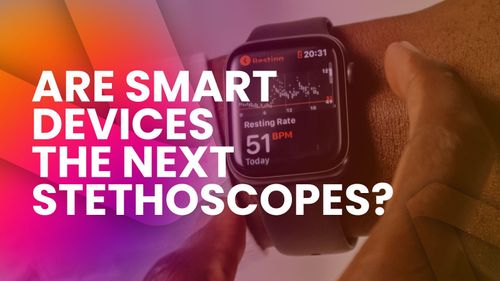
We were thrilled to welcome our attendees to Paris for our 2024 edition this morning to celebrate the champions of tech, discover the latest innovations, network together, and debate the topics that matter most.
We recap the best moments of the day.
France + Japan = A Blooming Partnership
Japan has given the world humanoid robots and bullet trains, quartz watches and Walkmans, LCD screens, QR codes (yes, that too!) and so much more. But VivaTech’s 2024 Country of the Year has not come to Paris to bask in the glory of tech triumphs past.
On Stage One, Kazuchika Iwata, State Minister of METI (Japanese Iconic Ministry of Economy, Trade and Industry), stressed the significance of Japanese innovation, especially in the fields of green transformation and digital transformation, reminding us that innovation is driven by startups.
In a video, Fumio Kishida, Prime Minister of Japan, highlighted that Japan strongly supports innovation: “The amount of investments in startups has increased 10 times over the past 10 years and we aim to increase this amount 10 times more in the five years following our new startup strategy ending in fiscal year 2027”.
Kishida hopes that VivaTech will be a great opportunity for entrepreneurs from Japan, France, and all around the world to form connections to accelerate the resolution of current social issues. After VivaTech, Japanese and French collaboration will go on during the Paris Olympics and Paralympics and next year during the 2025 Osaka Kansaï Expo. “The seeds of innovation that are born here [at VivaTech] today will bloom in Osaka.” A message of hope!
 Software République’s reveal of U1st. Photo credit: VivaTech
Software République’s reveal of U1st. Photo credit: VivaTech
The Doctor Is Coming to You
Software République, a consortium of large French companies collaborating to innovate in mobility, revealed this morning the U1st Vision, an innovative medical van concept. This modular vehicle is designed to help local authorities and service providers deploy decentralized, humanized, and secure health services where and when needed.
"We thought that this base would be perfect to create a mobile medical center that we could send to any area where the people need it,” said Luca de Meo, CEO of Renault Group. “Normally we make cars for people to go elsewhere, now we make a car to go where the people are and where they need us."
The mobile medical center is equipped to offer prevention, diagnostics like blood tests, urine tests, maternity tests, and curative work in medical deserts. The concept includes an AI avatar and ensures cybersecurity and privacy protection.
"Three out of four French citizens felt that the waiting time and also the quality of treatment that they receive is impacted by where they live. We don't want distance to be any longer an obstacle to good health," explained Frédérique Le Grevès, President of STMicroelectronics France.
 On right, Dario Amodei. Photo credit: VivaTech
On right, Dario Amodei. Photo credit: VivaTech
Building at the Frontier of AI
Dario Amodei, co-founder and CEO of Anthropic, joined Andrew Ross Sorkin to discuss the ethical challenges that generative AI, LLMs, and AI companies are facing and also talk about what’s next for Anthropic’s industry-leading model, Claude.
In the short term, Dario believes that AI is complementary to humans and improves current productivity, but is not at a state to replace humans."By default folks who try to apply AI will often apply them in ways that by default replace humans but if they find a way for AI to complement humans that ends up increasing productivity more."
However, over time, in case AI becomes better than most humans, Dario pushed the need to rethink how society values people. “We need to stop deriving people's value from what they are able to produce economically.”
Dario also explained that their models have millions of self-trained features that light up when they are in use and that they can be enabled or disabled on demand. For example, one of Claude's models is aware that he's in a fictional setting, like an actor breaking the fourth wall in a movie, but you can disable this feature and the model changes its behavior. This is the same for biases for or against various kinds of groups, music genres, etc.
 From left to right: Christophe F. Maire, Founding Partner, Foodlabs; Mohamed Hage, Founder, CEO, Lufa Farms; Samantha Gadenne, Sr Corporate Venture Manager, EIT Food; Robert Gerlach, CEO and Co-Founder, Klim; & Julie Klinge Johansen, CCO, Too Good to GoCCO. Photo credit: VivaTech
From left to right: Christophe F. Maire, Founding Partner, Foodlabs; Mohamed Hage, Founder, CEO, Lufa Farms; Samantha Gadenne, Sr Corporate Venture Manager, EIT Food; Robert Gerlach, CEO and Co-Founder, Klim; & Julie Klinge Johansen, CCO, Too Good to GoCCO. Photo credit: VivaTech
Waste Not, Want Not: How to Rethink Our Food Systems
A trillion tons of food is wasted every year, which would represent the equivalent of 30% of cultivated land on Earth. A finding that must also be read alongside other data: 830 million people suffer from chronic hunger. This panel examined how technology can help us illuminate, tackle, and avert this critical challenge.
If it is necessary to distinguish between food losses (which occur between the farm and the seller) and waste (which occurs between the seller and the consumer), the company Too Good to Go intends to act on the second lever. "We use AI to help grocery retailers manage expirations dates in the store and also to discount their products before they become surplus,” said Chief Commercial Officer Julie Klinge Johansen. “80,000 meals are going to waste every second,” she explained. In order to save those 80,000, companies and people need to commit to innovation to solve the challenges of food waste.
For Christophe Maire, Founding Partner of Foodlabs, it is sometimes the habits of certain farmers that must change when the soils have lost around 50% of their fertility. “Harvests are more and more volatile, require the use of more and more fertilizers. Except that their price, with the current context, has been multiplied by four. Even if you are not sensitive to ecology and only see the economic side, this type of practice is becoming obsolete.” Foodlabs is currently carrying out tests on crops to create more resistant plants to climatic hazards, in the hopes of reinventing how the soils are used.
 On left, Robin Li. Photo credit: VivaTech
On left, Robin Li. Photo credit: VivaTech
AI: The View from China
Robin Li is the CEO and co-founder of Baidu, China's top search engine and one of the world's most popular websites. Eight years ago, Robin was already here for the first edition of VivaTech in 2016, and today was back to discuss AI, eagerly anticipating the arrival of “millions and millions of new, AI-native applications that we probably cannot even imagine.”
He compared the different approaches of AI in China and in the rest of the world: “In China we take a more application-driven approach. For example, with LLMs, in the US and probably in Europe, everybody is focusing on coming up with the most powerful, the most cutting edge foundation model. But in China, although there are also hundreds of foundation models, people are increasingly talking about what is the super app for the AI age, the ‘killer’ app, the AI native app.”
With that, Chinese startups and companies are trying hard to figure out the right product format to take advantage of LLMs. Baidu’s Language Model, Ernie, has already cumulated 200 million users across different applications. Although AI is much more used and distributed in China than in other countries, China focuses more on the applications on than the transformative aspects of society for AI, as Maurice Levy underlined. “I don’t think this is contradictory,” Robin retorted. “Application-driven approaches can also propell innovation, prepare and speed up transformation. I think it’s just two different approaches but they can coexist.”
Baidu was fast to develop its model, Ernie. “It’s all about belief. I have been a believer of AI for a long time,” he underlined. “After Baidu was founded I realized that AI was probably going to be the way to solve the search problem. Over a decade ago we started to aggressively invest in AI, especially in natural language related AI. We launched Ernie 1.0 in 2019. Then we have the 2.0, 3.0. We were able to enlarge that before the other companies because we were prepared.”
See you tomorrow!
So much is yet to happen on our VivaTech stages over the next three days. Catch the breaking news on our social media: Instagram, X, TikTok, and LinkedIn.
Don’t forget to tag us @VivaTech and add the hashtag #VivaTech so we can see how you are spending your time at Europe’s biggest startup and tech event.


